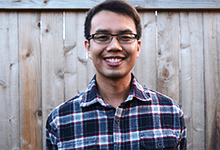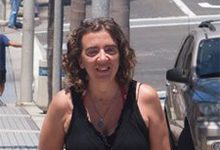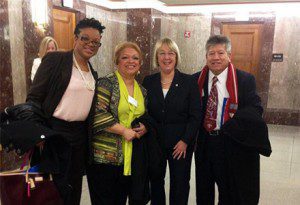It’s baaaaack. Just when you thought it was safe to go back into your inbox, here come your cheeky reflections on the news from Oly and beyond.
Much has happened since last we spoke. The Legislature is being held in contempt by the Supreme Court—pending meaningful investments in “basic education,” and a plan to implement those investments. The elections have colored Washington a shade more purple than blue, and an improving economy has Washington voters thinking that education is the issue of the day. Will that spell good news for those of us wanting to see smart investments in the education continuum? Will Early Learning be the new Netflix series? Will the cheese be mightier than the hawk?? These and other questions will resolve themselves over the next few months.
But first, a look at the big themes of the session. (You can track the details here, where we describe the bills of note and what’s going on with them.)
Necessary but not sufficient: With all due respect to the K–12 system, the growing consensus is that if we are really going to prepare students to be meaningful contributors to our democracy and society, a high school diploma isn’t enough. Our view is that “basic education” is a continuum beginning early on—pre-k at the latest—and extending into higher education. We are not alone.
You say you want a revolution: According to some, our tax system (Yes, that WAS the opaque reference to the Revolution. Bonus points for those of you still with me. There WILL be prizes at the end. I swear. Really.) is kinda outta whack. Some would say it’s the worst in the country. While Senate Republicans don’t want to go gently into that taxing night, taxes will be front and center.
Sharing is caring: The closely divided Legislature provides some unique opportunities for shared leadership. Bi-partisan leadership may feel like a legacy from the past, but if we are going to see results our kids need and the Court is demanding this session, policy leaders will have to reach across the aisle to get the job done.
Trends to watch out for: Testing, testing. Free college isn’t just the President’s “thing.” It’s our thing. Early Learning WILL be the new Netflix series.
Miscellany:
Well, kids, that’s it for this first week of the session. Join us again next week when I wax on about my Packers going to the Super Bowl. And the first time a bill gets “Roached.”
As always, thanks for all you do on behalf of Washington’s kids—however old they might be. We couldn’t do it without you.
Korsmo’s Weekly Roundup is emailed to subscribers weekly and posted on our blog on Fridays during the 2015 legislative session. Sign up to receive Korsmo’s Weekly Roundup via email.
 Tony Vo recently graduated from the University of Washington (UW) with a degree in public health and American ethnic studies.
Tony Vo recently graduated from the University of Washington (UW) with a degree in public health and American ethnic studies. Emma Margraf became a foster parent nearly seven years ago. You may have read her
Emma Margraf became a foster parent nearly seven years ago. You may have read her 
 That’s how Seattle parent Jessica Colinares describes her daughter’s experience in preschool. Eva’s success—thanks to her access to high-quality early learning—isn’t extraordinary; rather, it’s the norm.
That’s how Seattle parent Jessica Colinares describes her daughter’s experience in preschool. Eva’s success—thanks to her access to high-quality early learning—isn’t extraordinary; rather, it’s the norm.